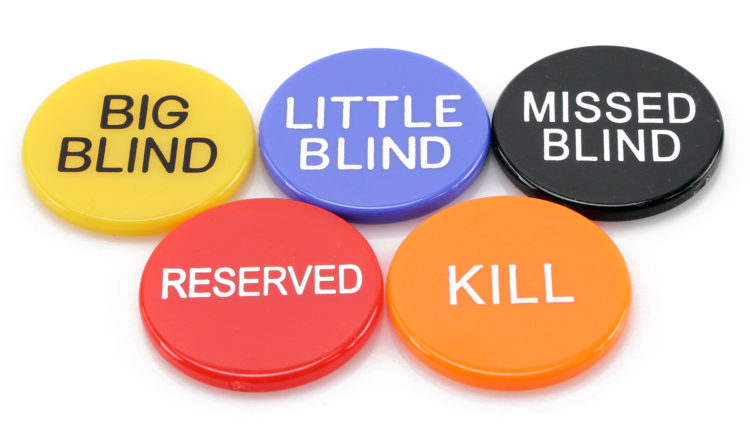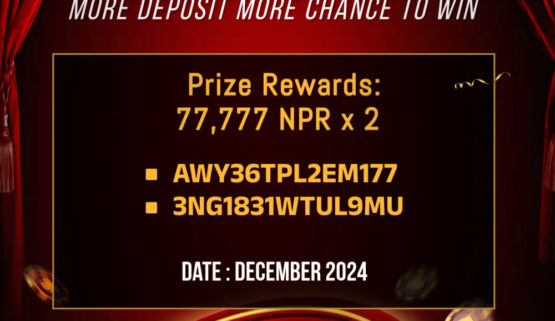One of the things that I see in virtually all cash games and tournaments is players, when they are in either the big or small blind, defending them as if they were their first-born child. Despite heavy action in front of them – or the hijack, cutoff or button putting in an expected raise – players will make the call out of the blinds with less-than-adequate cards because they believe their opponents are “stealing the blinds.” With this said, you don’t ALWAYS have to do this.

“Defending the blinds” came from the hyper-aggressive change in tournament poker during the mid-2000s. Perhaps because of the testosterone-fueled nature that poker has developed over the past decade, players that are in the blinds view raises while they are in the blinds as an “attack” against them that requires action. As time has gone by, this attitude has drifted into the cash game arena despite the differences between the two formats.
My personal theory on blinds is that they are an expenditure that you have to make. The blinds are an involuntary bet that must be done for your participation in the game. Because it is a forced bet, why does that change the standards that you set for action when you are in a different position?
For example, let’s say you are in the small blind and have a raise and a three-bet in front of you. I have seen players with as little as a paint card make the call of the three-bet out of the blind simply because they already have “action” in the pot. In reality, you don’t have any “action” in the hand; the blinds aren’t something that you voluntarily did and, as such, shouldn’t be defended to what may eventually be your poker death.
I have several rules of action when it comes to my blinds and it depends on whether I am playing cash games or tournaments.
Tournaments
Especially in the early going of tournaments, defending the blinds is an illogical action as you are simply bleeding off chips that you can use when you actually have a hand. When the blinds are low, some players just don’t think that a 50 chip call out of either blind will have that much effect on their chip stack. If you defend every blind without success, however, the chips will begin to mount up even though the blinds are low, depleting your ammunition that you could use in a better position or with better cards.
In the middle to late stages of a tournament, defense of the blind isn’t necessarily a bad thing but it still shouldn’t be overdone. Although the incidents of stealing are sometimes more prevalent at these moments (especially by stacks that may be larger than yours), the original philosophy of being judicious with your blind defense isn’t thrown out the window.
Cash Games
I try to carry similar ideas from the tournament arena to cash games, but I can be a bit more likely to come along for the ride. In a cash game, there is occasionally more calling of the blinds than there is raising. As such, if I can get a look at a flop either with a check or a minimal expenditure (this isn’t a tournament, I can dip back in the wallet if necessary), then the occasional blind defense isn’t necessarily a bad thing. You still don’t want to do it all the time, though.
When SHOULD You Defend?
Whether in a cash game or a tournament, you have to look at your cards as if you were in any other position on the felt. If you have heavy action in front of you and look down at a 9-3 off suit, those aren’t cards that you can adequately make a defense of any type. In those cases, it is a better action to get out of the way and let the blind go. Sure, there could be stealing action in front of you but, with mediocre holdings and the factor that you will be first to make any actions after the flop, you will have no idea of your standing in the hand against aggressors. In addition, missing the flop with dismal cards doesn’t leave you many options other than a steal attempt.
With this said, there are times that the blind defense is required despite the cards you hold. If there is a player who comes at you consistently from late position, then you do have to keep them honest sometimes. In a perfect world you’d like to have something significant to fight back with but, sometimes, a well-timed re-raise against a serial blind pounder will push them back and allow you to pick up some of those earlier blinds you let go.
I usually like to make a blind defense (and in defense I mean call) with one of two hands: either a smaller pocket pair or a connector, either suited or off suit. The baby-to-middle pairs are a sneaky foe that can rise up against a bigger hand and, if you miss, you can check-fold with a level of comfort. The connectors also have some danger against bigger hands, especially if the flop comes favorably to you.
Summary
Blind defense isn’t a crime but it shouldn’t be something that you ritualistically do every hand. Just like there are the moments when a raise out of the late position slots to steal a key pot is necessary, the blind defense is also something that should be handled on a case-by-case basis. Take into account what is going on around you, your table image, whether the button has been a little too larcenous of late and, finally, what you’re actually holding before wading into the waters.













